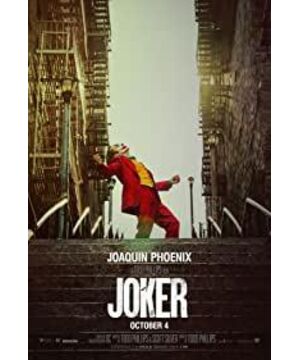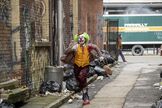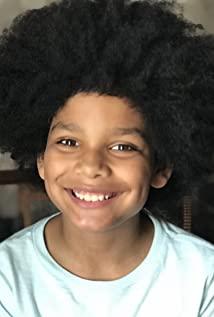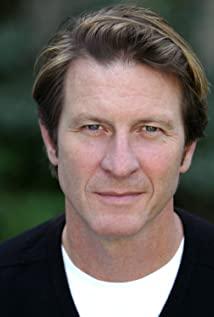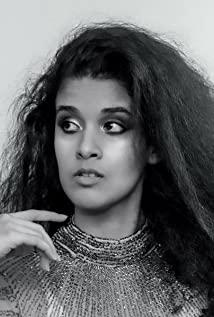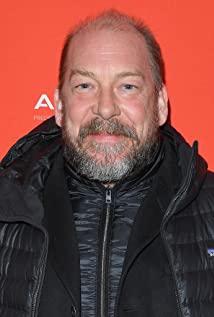(This article is first published on WeChat WeChat public account)
At the end of "Joker" I almost burst into tears. The reason is probably that "Joker" is almost separated from the superhero universe of good and evil. Gotham can be any modern city with tall buildings and smelly drains, and the clown whose real name is Arthur is basically an ordinary person. Of course, the film still clicks on a few familiar names, Batman Bruce Wayne, Sheriff Gordon, but they are almost useless. Therefore, even though comic change + Golden Lion made the film the center of controversy, its dissociation of content and stylized form may disappoint viewers looking at the DC universe. There are no superheroes and no supervillains.
In Nolan's "The Dark Knight", the clown portrayed by Heath Ledger is an extreme philosophical abstraction: unprovoked evil, a reaction to order. "Crazy is like gravity, just a light push." He unreservedly evoked the evil hidden in everyone's heart, and let us discover that pure evil can also be thrillingly beautiful. Batman has something to worry about, and the Joker has nothing to lose. So the Joker became the one who caused the most damage to Batman. "Why so serious?" The movement with him as a symbol has a fundamental impact on the value system represented by Batman. In the two-ship problem that he set up near the game of the dark forest, "The Dark Knight" had to frustrate the clown's plan with the brilliant explosion of the prisoners' humanity, thus giving an idealistic ending that is actually impossible.
Therefore, on the one hand, the clown in "The Dark Knight" is neurotic and abnormal. On the other hand, it is hard to say that his thinking and actions are not the result of rational calculation. He grasped human nature accurately and released fatal blows time after time. In this sense, he is equal to Batman, he is by no means an ordinary person. Strictly speaking, we cannot even say that he is crazy, because although he loves crime and breaks away from social norms, he possesses and uses reason.
The clown in "Joker" is crazy. There is nothing to spoiler here. It talks about a little transparency that is not counted as a social animal is like copying and pasting day after day, a life that is completely worthless by any standard of our time. In some scenes in the second half, you will think of Fight Club. But it does not have the overlapping symbols of "Fight Club"-IKEA, mechanical copying, consumerism... Although part of the plot implies the gap between the rich and the poor, the level disparity, even though Gotham is as dirty as a mouse hole, "The Clown" "What I do my best to outline is actually a state of absolute loneliness. It does not analyze the cause, only throws out the result: unattended life is not even a link in the gear, and no one cares about life or death.
Arthur is not a philosopher, not a revolutionist, but a poor man who can hardly speak. When he is daydreaming on the TV, isn't he like every one of us who daydreams with a mobile phone? His smile when dreaming was actually shyer and more naive than ours, because he believed it, but we who were happily looking at the phone actually didn't believe it anymore. When he came and went on the subway, he was as lonely as every tired and numb animal on the night rush hour of the Beijing subway.
The most outstanding setting of the film is Arthur's laughter. "Why do I always smile?" In "The Dark Knight", the Joker gave two versions of the answer. In "Joker", we found that on the one hand, Arthur sincerely dreamed of becoming a famous comedian and brought people laughter, on the other hand, he often broke out of uncontrollable laughter due to pathological reasons. When he worked hard, there was no laughter as imagined, only people passing by mechanically. And when the laughter burst out untimely, only puzzlement and disgust greeted him. Joaquin Phoenix's laughter was long and sad, and he seemed to vomit his soul at the end. Why don't we laugh anymore? When did laughter become harsh noise. At one point in the film, the line between tragedy and comedy is penetrated, and the clown is born.
As a little transparent, no one listened to Arthur's words, and simply stopped talking. So we saw the clown dancing all the time. Faced with non-existent audiences, the rehearsal of appearances, appearances, salutes, and dances are extremely cruel in slow motion. The end of words is dance. When the language created by humans cannot communicate, the desire to communicate and express, and the cry of "I exist" breaks through the body in the dance. As people under social norms, we can only dance on specific occasions, such as alcohol anesthesia and bar music. And the clown, he turned the world into a stage for us.
We have seen little people dance in various movies. The middle-aged dance in "Fireworks in the Day", which sells his lover to restore his original job, is greasy and sad. The solo dance in the sunset in "Burning" is a beauty that is about to die. They render a kind of artistic conception, so that the small person becomes the focus of attention, and the emotions of the small person are also vivid. In the music film, dance makes the whole world spin, and everyone is automatically attracted in. The dance of the clown is out of place, like a social animal secretly dancing in an elevator.
Joaquin Phoenix lost weight to the bones for the show. In the first shot in the film, the protruding bones suddenly propped up at a right angle, which was shocking. Although we knew that he would eventually become the clown of the evil incarnation, when he dragged his skinny body in Gotham, I did not feel the horror that would explode in the next second. What I felt was a walking dead, a Lonely wild ghost. The routine we are familiar with is the disillusionment of the little people's beliefs, or rebuilding their beliefs, or finding new ones. And the clown, he danced in the garbage dump of faith, and the carnival of nihilism began.
We sit in the cinema to vent the dissatisfaction accumulated in daily reality, which is the social purification function of the film. But "Joker" faithfully kept this dead end state to the end. The clown mask eventually became a symbol, but their accumulation is not as magnificent as "V for Vendetta". They are rats from start to finish. The scene where the clowns we are familiar with gathers, lights up cars, and vandalizes everywhere is not as exciting as "Fight Club". In this sense, it is indeed anti-superhero.
Nothing can be lost is a state of loneliness. Marx said that people are the sum of social relations. When we lose all social contact and contact with people, we don't seem to be so "human" anymore. This is alienation. Absolute loneliness is linked to absolute freedom, and this freedom is linked to disorder. This is the philosophy of the clown. And "Joker" outlines a convincing origin for this philosophy.
The clown in "The Dark Knight" is like Michelangelo, and the destruction made again and again is like a master's handwriting. He must be a designer and the soul of a clown. And "Joker" cunningly lets us see that when Arthur is still hitting the iron barrel-like social web with his head and feet, the crime fire he accidentally ignited has already burned. Arthur is the most symbolic clown, but by no means the only clown. The clown is a mask that anyone who suffocates can pick up and put on.
Joaquin Phoenix is the one who tore you to pieces. In my movie watching, at the moment when Arthur officially became a clown, the back figure in a red dress reminded me of Heath Ledger. But other than that, it is no longer similar. When Heath’s clown wiped his bright red lips with a smile, I shared his evil, my suppressed anxiety was aroused, and I longed for his rebellion; when Joaquin’s clown made that action, I just wanted to cry.
There is a childish simplicity in Joaquin Phoenix's eyes. So when he tells you that he dreams of being a comedian and bringing people laughter, and when he acts as a literal clown, you will sincerely believe and laugh without worry. It is precisely because of this that when this childish innocence bursts out of destructiveness, and then sings nihilism, you will follow him from pain to sorrow, and experience the unbearable weight of life.
Why do we love clowns? Not only because we hate heroes (there are no lack of Batman-style self-discipline heroes in life), nor because we no longer have miracles in our lives (have miracles appeared?), but the clown, crying for his death , His nihilism really exists in the soul of each of us.
View more about Joker reviews


